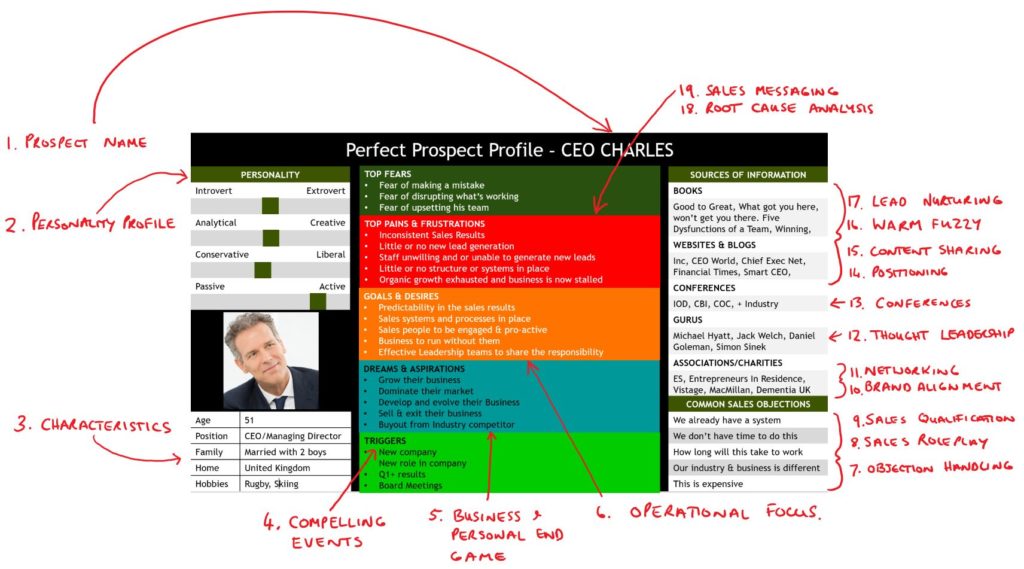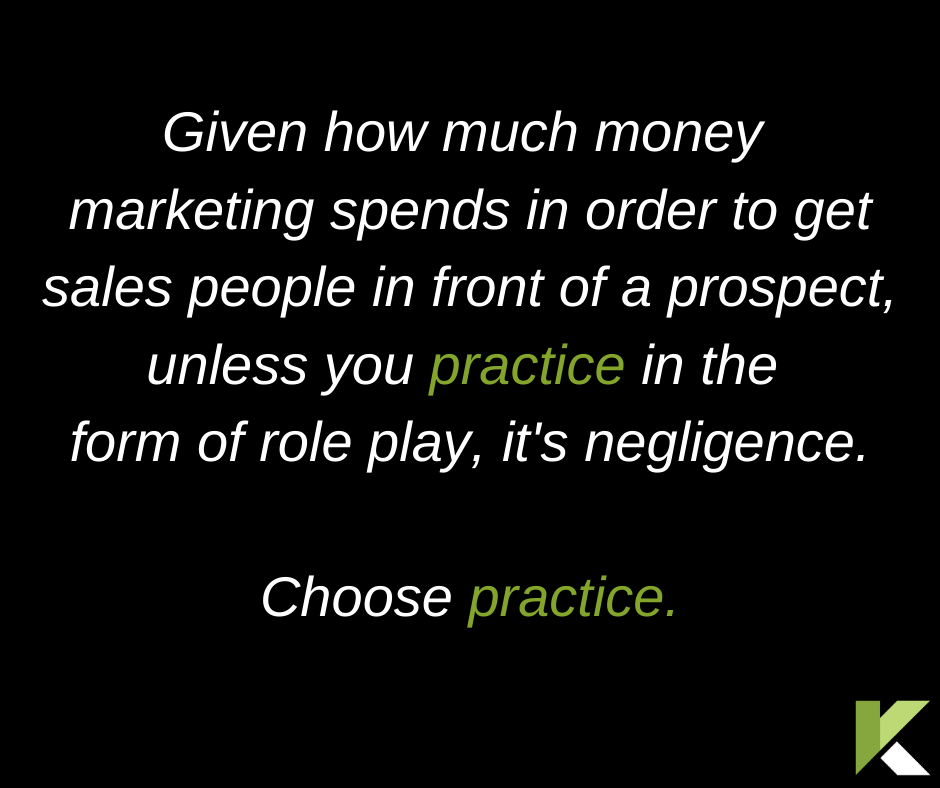
There’s a new way to deliver sales growth…
Don’t buy Sales Training until you’ve watched this video…

Don’t buy Sales Training until you’ve watched this video…
Most SDR training courses highlight the following steps, or similar to help train your SDR team:
Training your team of Sales Development Reps may start in the classroom (virtual or otherwise) however, this is just the start of the learning journey. In order to build a successful sales organization there are many other areas you should consider.

Whilst there is no doubt that ongoing learning via the “little and often” philosophy is important in terms of sales development, Sales Bootcamps are a great way to kick start the learning process.
SaaS Sales Training Bootcamps are typically 1 or 2 day sales courses. They are intensive by nature and provide SDR’s with a vast amount of information from which they can refer back to. Sales Bootcamps work best when they are used in conjunction with an existing sales campaign and ongoing sales coaching.
The bootcamps provide the training which is the knowledge, and the sales coaching helps the sdrs with the practical application of the knowledge.
In addition to SDR training, Bootcamps are popular for training topics such as Sales Fundamentals training which is designed for people who are completely new to sales and need a lot of information quickly, as part of their onboarding process.
The job of a sales development representative (SDR) is a challenging and valued position within any business. It is important to ensure your SDRs are aware of their impact within the business and how their performance will help the business grow.
Unfortunately most Sales Development Reps tend to leave after a year. Most business owners will tell you the SDRs weren’t cut out for the position or that their SDRs left to climb the sales ladder elsewhere.
At Klozers, although we believe that could be partly true, it’s often a more complex situation.
People typically leave because they fall out of love with their sales manager and the company. Part of sales management is providing the best training possible and then continuing to build upon existing sales skills to help SDRs hit targets regularly.
Modern sales management includes providing professional development linked to a career path even if that means that the sales representative has to leave the company to develop their sales career. The more you invest in them the longer they will stay.
No sales professional wants to miss sales targets, nobody wants to work in a business where selling is like wading through treacle. People want to win, they want to sell, and a big part of sales management is making your team successful.
An SDR training course is a prerequisite for this and will help your sales team improve cold calling, social selling, communication skills and other sales skills unique to your service.
A Sales Professionals job never ends, there will always be prospects to serve! It only makes sense to establish ongoing sales training to help SDRs keep up-to-date on new sales trends, competitors, new product releases, new training tools and so on.
Not only will this help improve the efficiency of your business, this will enhance employee retention and job satisfaction.
The key to any successful SDR training course is to keep it simple and set clear expectations of what you expect from your Sales Team and what they can expect from you. This means building a strong culture of communication and collaboration within the team.
In addition to sales training we would encourage you to consider developing a comprehensive learning programme for your sales teams that include:
1. Company
History, people
Sales Vision & Values
2. What we sell
Products and services,
3. What problems we solve
Pain points, value proposition,
4. Who we sell to
Ideal client profile, Perfect Prospect Profile
5. How we sell
Sales Process
6. Sales Competencies
For a list of our 21 recommended sales competencies download our SaaS Sales Playbook here.
Most SDR training plans will include topics such as setting targets, training, mentoring, culture, rejection, and customer personas. Topics such as customer personas for example are key to ongoing marketing success.
Understanding customer personas helps your SDR’s learn what drives prospects to purchase your product or service. This also helps your SDR’s to understand the customer profile that your business draws in, and helps your SDR team to narrow down what the prospect wants out of your company.
This is also a great way for your Sales Reps to have a natural yet targeted conversation whether that be by phone, email, or in person.
At Klozers we use two different models for customer personas. The first is the ideal client profile or ICP which refers to the actual businesses that fit our criteria and secondly the perfect prospect profile. This profile is specific to the different buyers within and organisation and the differing pain pints they may have.
A really important topic to cover in your SDR training is rejection and mindset. We all experience rejection day to day, so why is it so discouraging when it happens when speaking to potential customers?
Most SDR’s are new to the role and want to prove their worth. Sales prospecting can be disheartening for them and quickly demotivate them. In sales, if you are not getting told no more than yes, then you are not talking to enough people. The first ‘No’ an SDR receives will be the first of many.
A great way to learn from this experience would be to ask your prospect why they declined. Take a look at reviewing your SDR’s sales strategy and practice listening skills and responses.
Being told ‘No’ is common practice in the sales, how your Sales Rep handles that conversation is key to their progression within the sales world.

Before any Sales Professional makes a sales prospecting call, they should always be ready to answer the four most basic questions any potential customers may ask on the call such as:
A great way for your Sales team to prepare for these questions is to role play with their colleagues. Ask your SDR’s to put themselves in your prospect’s shoes.
An interesting way to include the team with this is to pick one SDR as the caller, and the other SDR’s to role play as the potential new prospect.
Ask each SDR role playing as the prospect to ask these questions in a quick fire round. This exercise allows your SDR playing the role of the caller to be quick on their feet when answering questions.
Another great exercise would be to ask each SDR in your team to give a brief talk on their favourite subject to the rest of the team. Challenge the other SDR’s in your team to take notes of how many filler words the speaker uses such as like, um, uh, well, so, okay etc.
The aim of this exercise is for the speaker to use as little filler words as they can. This will help your SDR’s appear more professional, confident and push their value proposition to their prospects

With so much free sales training available we are sometimes not the first choice everyone. A quick search on the internet will show that there are lots of free SDR training courses and materials all available online, picking the best one for you and your business is the tricky part.
A lot of the free online courses available are pre recorded and offer no chance to ask questions or interact with the sales trainer. This is not a great learning environment.
In addition to the importance of Live Training, we also understand that everyone learns differently, which is why it’s important to follow 4 key and easy steps, Consistency, assistance, practice, and progression.
1. Consistency
Ensure that your training for your SDR team is consistent. Scheduling in the training for your team shows your commitment to your team to help them become the best Sales Reps they can be.
It’s important to stick to your training schedule to show your team that you value them and their development. This is a great way to help keep your SDR’s within your business.
2. Assistance
Assist your team with their learning. Everyone learns differently and at their own pace. By researching different learning styles such as role playing, cold call games, and live call feedback you will help all the Sales Reps in your team. This is a great way to also include every SDR in the training by running through different mock examples.
3. Practice
Here at Klozers, we firmly believe practice makes perfect. It’s important to remember that most SDR’s have little to no prior experience in sales development. A great way to get your SDR team started could be to set a task to complete.
For example, record your SDR’s cold calls and play them back. Ask your SDR team to provide 3 things they think they could’ve done to improve that call. Encourage your SDR’s to think of their tone of voice and the language they use during the call. This can help them understand what they are doing successfully, and what they can improve on.
4. Progression
Progression is what all SDR’s want to achieve, this is a reason why a lot of Sales Reps leave the business to pursue a career elsewhere. Creating a training plan which incorporates the SDR’s progression within the business is a great way to keep them on track, and understand the value they add to your business.
All Inside Sales Professionals wants to prove their worth and show they can do the job at hand, but make sure not to let your SDR’s run before they can walk!
A simple tip would be to include scheduled 1-1 meetings with the sales manager to discuss their progress, their sales pipeline, offer feedback and work out a development plan together for each SDR.


Iain Swanston has spent over 30 years in B2B sales selling, training and leading teams both domestically and internationally. In addition he serves as an Associate at Strathclyde University Business School where he has delivered the sales content for the Masters in Entrepreneurship since 2015.
107a High Street
Dalkeith
EH22 1AX
United Kingdom
8911 North Capital of Texas Highway, Suite 4200 #1154
Austin, TX 78759
United States
Klozers
Ground Floor
470 St Kilda Road
Melbourne VIC
3004